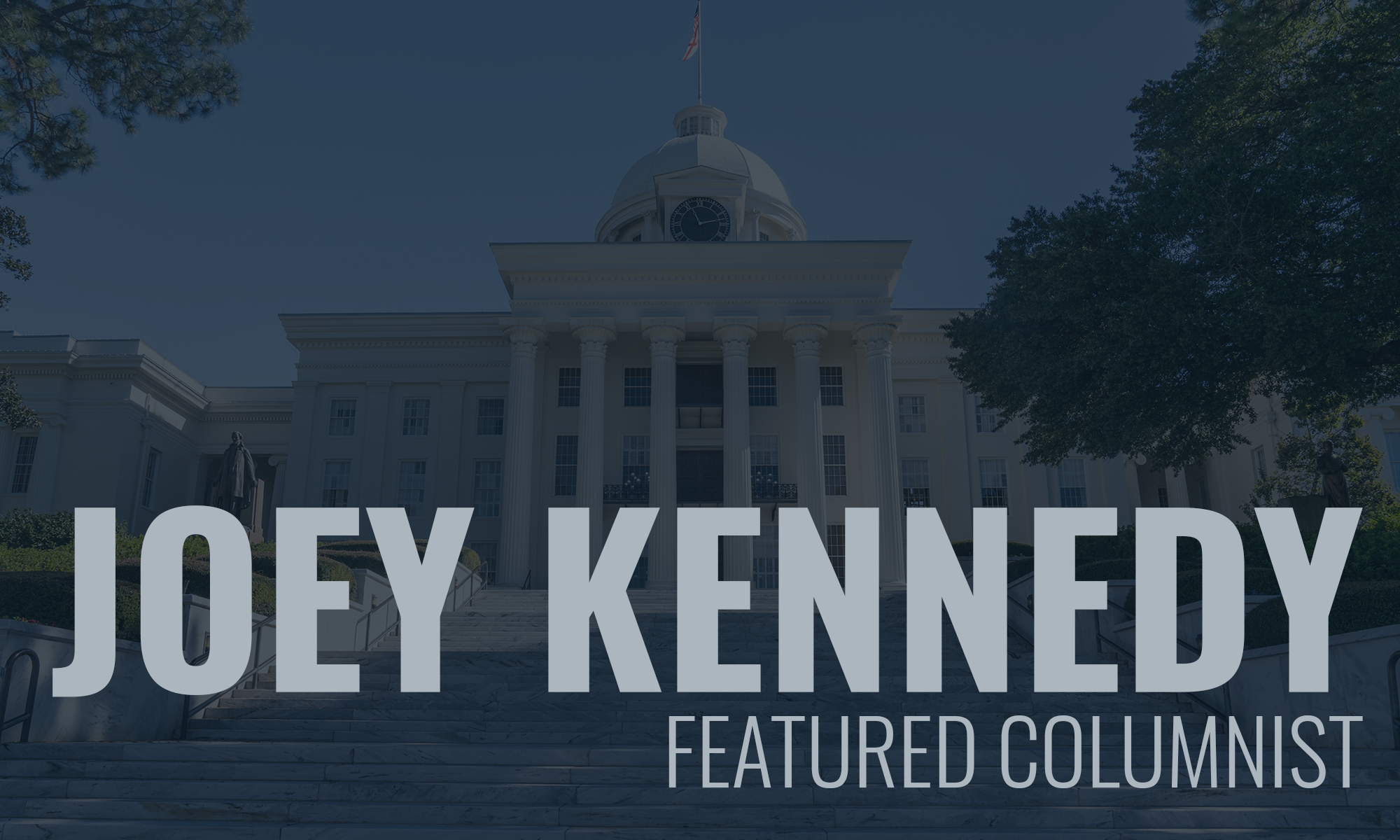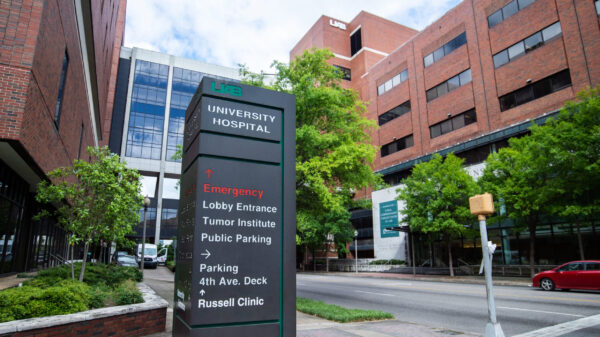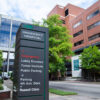It’s a Wednesday in March, and I’m standing on a sidewalk between the Alys Stephens Performing Arts Center and Spencer Honors House at UAB. Nobody is in sight. Not one person. I almost expect a tumbleweed to bounce past my feet and head across the empty green toward the decrepit Humanities Building.
Yes, it’s Spring Break, but during most every Spring Break, some students stay on campus. Not this year. The COVID-19 (novel coronavirus) has seen to that.
Sadly, next week when Spring Break ends, the UAB campus will be just as deserted.
This lack of people at UAB is reflective of Birmingham itself in these early days of a pandemic that could last 18 months.
Coming into work during rush hour, there were hardly any vehicles out. I pulled up to Chick-fil-A on Five Points South, and there were more open parking spots at curbside pickup than there were cars waiting for food. This is one of the busiest Chick-fil-As in Alabama, but unlike most mornings, the restaurant isn’t slammed today. The dining room is closed. The most telling indicator, though, is I had no trouble parking on campus.
There is a silver lining, right? We’re all going to get checks from the government, says the government. I’ll believe it when I cash it. Unemployment nationwide, at record lows a few days ago, is expected to soar in the coming weeks. Unemployment Insurance claims have jumped as the coronavirus shocks and awes the U.S. economy.
Just a week ago, Birmingham was the bustling city we love. Now, tens of thousands of people are practicing social distancing, mainly by sheltering in place at home. Those who can, work from there. Those who can’t maybe soon missing paychecks.
“Life feels completely different,” a news announcer says.
That’s because life is completely different.
Only seven days ago, Alabama confirmed its first coronavirus case, a patient in Montgomery who is already out of the hospital. Now, Alabama is approaching 100 cases, nearly half of them in Jefferson County, the epicenter of COVID-19 in Alabama. Nationwide, there are close to 10,000 cases.
Everything is canceled or delayed. The Republican Primary runoff between Jeff Sessions and Tommy Tuberville is pushed back to July 14 instead of March 31.
Weddings are postponed and family reunions canceled. There is an invisible danger surrounding us, pressing into our personal space, so we don’t go to church to pray or to funerals to grieve or to movies to forget. Or to school to learn. College students are subjected to online classes from wherever they live, and that’s not the most efficient teaching.
I have a student who is back home in the Czech Republic. Many of my students are scattered throughout the nation, and since we won’t be back on campus for the remainder of the semester, they’re likely to stay right where they are, at their family home. Besides, home is where the heart is. And now the school. And now the dorm. And now Mom’s cooking. And Dad’s drinking.
It’s a Shipt economy we live in now. We get our groceries delivered so we don’t have to risk the trip into Publix.
Frank Stitt’s Highlands Bar & Grill is shut at least until the end of the month. If you know of any restaurant dining room open, drop me a line. My birthday is next week, and my wife wants to take me out.
Isolation and loneliness aren’t the only coronavirus side-effects. Hospitals are postponing elective surgeries and procedures. My wife is scheduled for a cardioversion (shock to the heart to restore normal heart rhythm) on April 1, but it looks like that’ll be put off until who knows when.
[visual-link-preview encoded=”eyJ0eXBlIjoiaW50ZXJuYWwiLCJwb3N0Ijo4Mzc4NCwicG9zdF9sYWJlbCI6IlBvc3QgODM3ODQgLSBUaGUgbnVtYmVycyBzaG93IENPVklELTE5IGNvdWxkIGNyaXBwbGUgQWxhYmFtYSdzIGhvc3BpdGFscyIsInVybCI6IiIsImltYWdlX2lkIjo4MzIwMCwiaW1hZ2VfdXJsIjoiaHR0cHM6Ly93d3cuYWxyZXBvcnRlci5jb20vd3AtY29udGVudC91cGxvYWRzLzIwMjAvMDMvQWRvYmVTdG9ja18xODk2ODExNzEtc2NhbGVkLWUxNTg0MjM4NzQ5MzUwLTEwMDB4NjAwLmpwZWciLCJ0aXRsZSI6IkhvdyBDT1ZJRC0xOSBjb3VsZCBjcmlwcGxlIEFsYWJhbWEncyBob3NwaXRhbHMiLCJzdW1tYXJ5IjoiV2lsbCB0aGlzIGNyaXNpcyBjcmlwcGxlIG91ciBob3NwaXRhbHM/IFJlYWQgbW9yZSBoZXJlLiIsInRlbXBsYXRlIjoidXNlX2RlZmF1bHRfZnJvbV9zZXR0aW5ncyJ9″]
But you know what? It could be worse, and it will be, but not like it could be. This, too, shall pass. Probably not as quickly as we want or hope, but we’ll make it to the other side.
The Black Plague, which struck Medieval Europe in 1347, killed approximately one-third of Europe’s population (25 million – 30 million) before it played itself out in 1350. We don’t have the black plague, but mainly because in this modern society; we have great medical technologies and doctors who aren’t going to bleed you to cure you.
Donald Trump spent weeks downplaying the virus and mishandling the government response, at one point calling the disease a “hoax,” We’ll be paying the price for that for months if not for more than a year. Some Republicans even now remain skeptical that the disease is as virulent as it is, though itcontinues to spread and has killed more than 100 people in the United States.
To stay ahead, one must plan ahead. Not Trump. He flies by the seat of his ample pants, and that has come back to bite him – and us – right on the rump. Still, Trump continues to brag about how well he’s managing the crisis, though at least 60 percent of Americans disagree.
If you think about it too much, it gets discouraging. I think I’ll go outside and look for a tumbleweed.
Joey Kennedy, a Pulitzer Prize winner, writes a column each week for Alabama Political Reporter. Email: joeykennedy@me.com.


















































